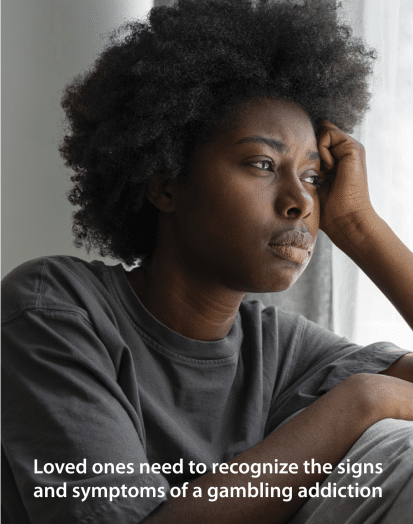Sports betting, once a niche activity, has exploded in popularity in recent years, fueled by the rise of online gambling platforms and legalized sports betting in many jurisdictions. While the thrill of placing a bet and rooting for your favorite team can be exhilarating, it’s important to recognize the potential dangers of sports betting addiction.
The Psychology of Addiction
Several psychological factors contribute to sports betting addiction:
- The Illusion of Control: Many bettors believe they can influence the outcome of a game through their knowledge and analysis. This illusion of control can fuel compulsive behavior.
- The Thrill of the Chase: The anticipation of a potential win can be addictive, leading to increased betting frequency and stakes.
- Escape: Betting can serve as an escape from stress, boredom, or negative emotions.
- Social Influence: Social factors, such as peer pressure and the influence of social media, can contribute to the normalization of sports betting and encourage excessive gambling.
The Devastating Consequences
Compulsive sports betting can have severe consequences, including:
- Financial Ruin: Excessive betting can lead to significantfinancial losses, including debt, bankruptcy, and job loss.
- Relationship Strain: The negative impact of gambling addiction on relationships can lead to family breakdown and social isolation.
- Mental Health Issues: Compulsive betting can contribute to anxiety, depression, and suicidal thoughts.
- Legal Problems: In some cases, compulsive betting can lead to legal trouble, such as being arrested for loan sharking or fraud, which is why we encourage individuals to seek professional help with sports betting addiction Texas.

Recognizing the Signs of Addiction
It’s essential to recognize the signs of sports betting addiction and seek help early on. Common indicators include:
- Preoccupation: Excessive thoughts about sports betting, planning bets, and analyzing past results.
- Financial Problems: Borrowing money, selling possessions, or neglecting financial responsibilities to fund gambling.
- Relationship Strain: Neglecting family and friends, due to excessive gambling.
- Lying and Deceit: Hiding gambling activities from loved ones.
- Chasing Losses: Increasing bets to recoup losses, leading to a downward spiral.
- Tolerance: Needing to bet more frequently or for larger amounts to achieve the same level of excitement.
- Withdrawal Symptoms: Experiencing restlessness, irritability, or difficulty sleeping when unable to bet.
Seeking Help: Breaking Free from the Cycle
If you or someone you know is struggling with sports betting addiction, it’s essential to seek help. Here are some steps to take:
- Acknowledge the Problem: The first step is to recognize that you have a problem and that it’s negatively affecting your life.
- Seek Professional Help: A therapist or counselor can provide guidance and support.
- Join a Support Group: Connecting with others who have similar experiences can be helpful.
- Avoid Trigger Situations: Stay away from casinos, betting websites, and other gambling environments.
- Build a Strong Support System: Surround yourself with supportive friends and family who can help you stay on track.
- Practice Self-Care: Engage in healthy activities, such as exercise, meditation, and spending time with loved ones.
- Seek Financial Counseling: A financial advisor can help you manage your finances and avoid future gambling-related debt.
Remember, recovery from sports betting addiction is possible with the right support and commitment as well as treatment for sports betting addiction in Texas. Don’t hesitate to seek help and break free from the destructive cycle of gambling addiction.
If you or your loved one requires help with sports betting addiction in Texas, reach out to the Gambling Clinic of Texas to schedule an appointment or to take our self-assessment.



















